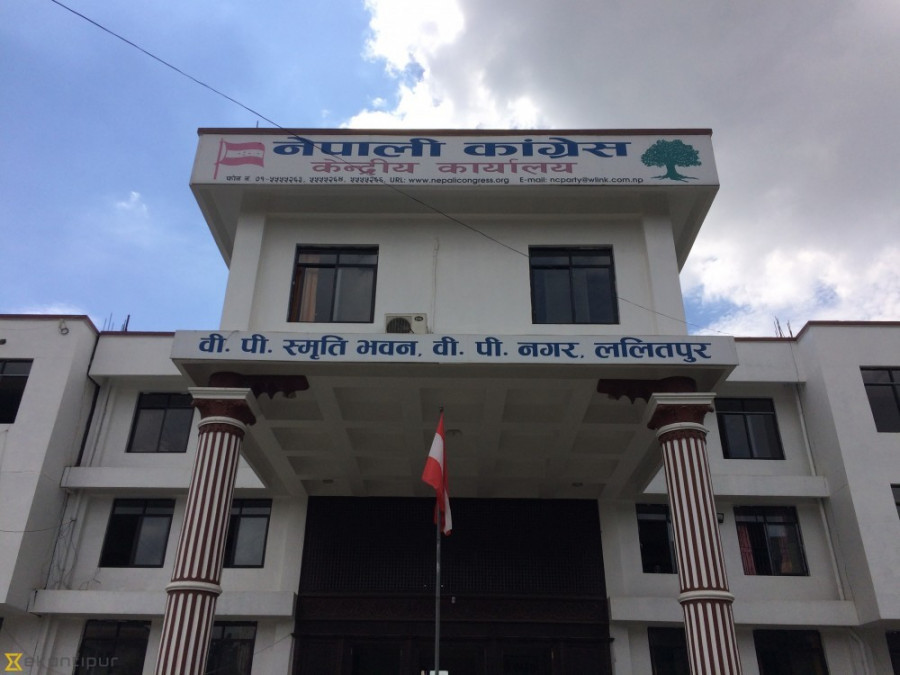National
Nepali Congress appears to be ready to get the ball rolling
The main opposition decides to seek Oli’s resignation and start process to form a government led by its president.
Anil Giri
The ongoing political deadlock seems likely to end soon.
The Nepali Congress, the main opposition party, during its Central Working Committee meeting on Friday evening, decided to seek resignation of Prime Minister KP Sharma Oli and take the lead to form a new government.
Despite pressure from within the party to take steps to unseat Oli, party President Sher Bahadur Deuba had so far been reluctant to do so.
“The meeting took precisely two decisions,” said Gagan Thapa, a party lawmaker and Central Working Committee member. “It has decided to seek the resignation of Prime Minister Oli, and we will also take initiatives to form a new government.”
After the Supreme Court on February 23 overturned his decision to dissolve the House of Representatives, Oli had been under moral pressure to resign, but he had refused to do so.
Numerically speaking, he still has the majority support in Parliament as the Communist Party of Nepal (Maoist Centre), revived together with Oli’s CPN-UML by the Supreme Court on March 7 by invalidating the 2018 merger between them, is yet to withdraw that support.
But with the Nepali Congress decision on Friday that is likely to change.
The Congress has to join hands with the Maoist Centre and the Janata Samajbadi Party, the third and the fourth largest parties in Parliament respectively, if it is to offer an alternative to the Oli government.
“With our decision, the ball is in the court of Communist Party of Nepal (Maoist Centre) and the Janata Samajbadi Party,” Thapa said. “Now they also have to make decisions on a new government soon.”
With the Supreme Court on Thursday rejecting Pushpa Kamal Dahal’s plea that the March 7 decision to scrap the merger of the UML and Maoist Centre be reviewed, his options are limited.
Meanwhile, Oli has been courting the Samajbadi Party to secure its support to save his government. However, the party, with 32 seats, is divided on whether to support Oli or not.
There are two ways that Oli can be unseated. One, if the Maoist Centre withdraws the support it gave to UML when Oli became the prime minister in February 2018, then he will have to seek a fresh vote of confidence. In such a scenario if Oli cannot get the support of 136 members of the House, his government falls.
The 275-member House at present has 270 seats as two lawmakers each from the Nepali Congress and the Janata Samajbadi Party have been suspended and one UML lawmaker has died.
The UML has 120 seats in Parliament, the Nepali Congress 61, Maoist Centre 53, of which four have defected to the UML, and Janata Samajbadi Party 32.
The second way that Oli can be unseated is through a no-confidence motion.
At the moment it is unclear which of the two ways Oli will be unseated.
According to a Nepali Congress leader, senior party leaders Ram Chandra Poudel and former general secretary Krishna Prasad Sitaula asked Deuba at Friday’s meeting to prepare for registering a no-confidence motion against Oli.
The desire to unseat Oli is so strong within the Nepali Congress that both Poudel and Sitaula said at Friday’s meeting that the party does not necessarily have to lead the government but could support the Maoist Centre and the Samajbadi Party to form another government, according to a number of Congress leaders that the Post talked to.
“As the opposition, we have decided to unseat Oli,” Minendra Rijal, another Central Working Committee member and lawmaker said. “If he does not resign, we will start work on forming a new government or a coalition government.”
According to Rijal and Thapa, they had visited Deuba at his residence on Thursday to convince him of the need to take a decisive step to oust Oli.
“Since we were holding the Central Working Committee meeting in the midst of a political crisis in the country, we pressed Deuba to take a firm decision on Oli’s resignation and taking the lead to form a new government,” said Thapa. “Deuba was finally convinced and decided to take these two important decisions that millions of party leaders and cadres have been waiting for.”
Friday’s meeting of the Central Working Committee had been delayed by hours as there were differences within the party over a new government.
Deuba had been reluctant to stake his claim to the post of prime minister as he was unsure of the support of the Samajbadi Party in particular although Dahal has offered to support him.
“I will convince Rajendra Mahato to support us if you become ready to take charge,” Poudel told Deuba in the meeting on Friday evening, according to a leader who did not want to be quoted.
Ahead of the meeting, Deuba’s rival Poudel had warned of seeking an alternative to Deuba if he continued to refuse to take the lead to form a government under his leadership.
Though the Poudel faction did not specifically propose the name for Deuba’s alternative, two senior party leaders—General Secretary Shashanka Koirala and former general secretary Prakash Man Singh—have expressed their interests if Deuba refuses to take charge of a new coalition.
“As the leader of the primary opposition, Deuba should lead the new government,” a senior leader close to Poudel said. “But if he is not interested in taking charge to lead the alternative government, then he should pave the way for [other] leaders within the party.”
But for now at least there is a consensus within the main opposition that an alternative to Oli must be found.
“Oli had to resign earlier on political and moral grounds but he did not,” party spokesperson Bishwa Prakash Sharma said. “Those who had opposed Oli’s unconstitutional and undemocratic move should come together to replace him.”




 14.12°C Kathmandu
14.12°C Kathmandu














